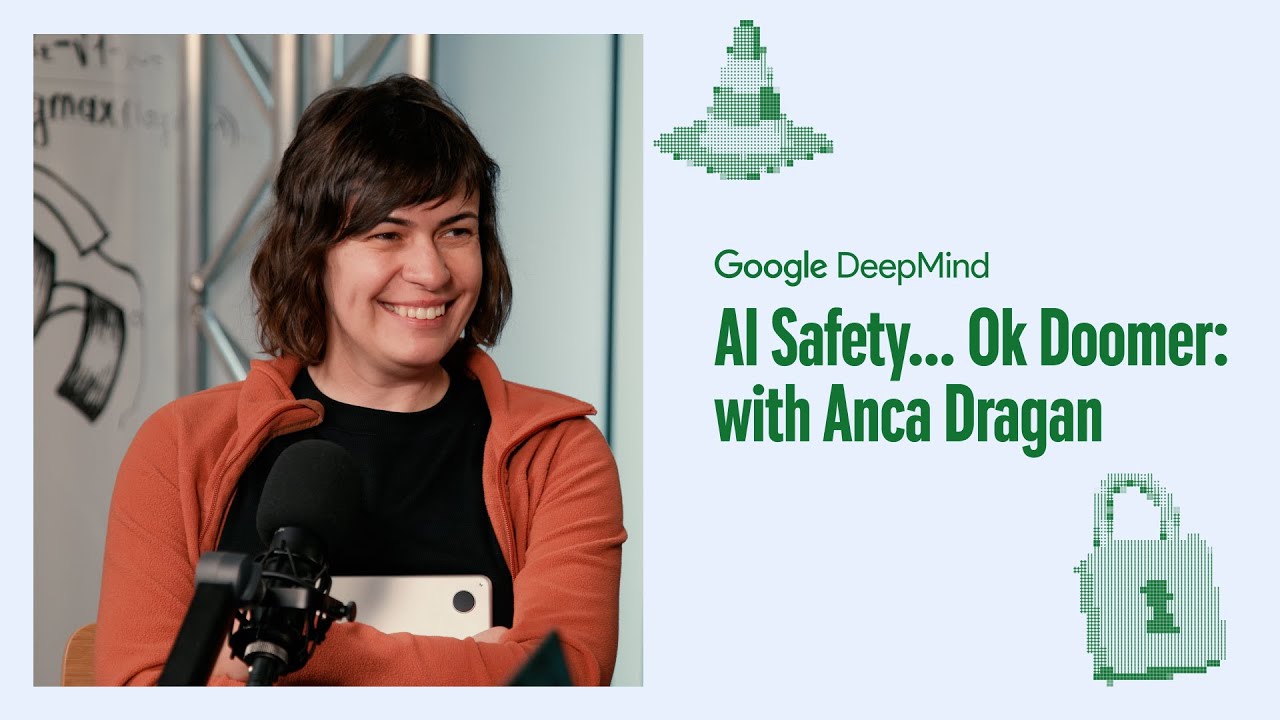In the podcast episode with Anca Dragan, the discussion focuses on the importance of integrating safety and alignment considerations into AI development from the outset, emphasizing effective human-AI interaction to ensure that AI systems align with human values. Dragan also addresses the challenges of defining alignment across diverse perspectives and highlights the need for proactive frameworks to manage the existential risks associated with advanced AI, particularly as we move towards artificial general intelligence (AGI).
In the podcast episode featuring Anca Dragan, the discussion revolves around the safety and alignment of artificial intelligence (AI), particularly in the context of advanced AI systems like Google’s Gemini. Host Hannah Fry introduces Dragan, who leads AI safety and alignment at Google DeepMind, emphasizing the urgency of addressing both short-term and long-term risks associated with AI development. Dragan argues against the notion that safety can be an afterthought, asserting that safety considerations should be integrated into the design process from the outset, much like ensuring a bridge is safe before it is built.
Dragan highlights the importance of human-AI interaction, drawing from her experience in robotics and driverless cars. She explains that effective AI systems must anticipate human behavior and facilitate a back-and-forth dialogue to ensure alignment with human values and intentions. This interaction is crucial for creating AI that can safely navigate complex environments, whether in physical spaces or through conversational interfaces. The conversation emphasizes that AI should not only respond to user queries but also engage users in a way that clarifies their needs and preferences.
The podcast also delves into the challenges of defining alignment, particularly when considering the diverse values and preferences of different individuals and cultures. Dragan discusses the limitations of traditional reward functions in AI, which often fail to capture the complexity of human desires. She proposes the idea of using multiple reward functions or distributions to better represent the varied perspectives of users, thereby improving the AI’s ability to make decisions that are acceptable to a broader audience.
As the conversation progresses, Dragan introduces the concept of scalable oversight, which focuses on how AI can assist humans in making informed decisions, especially in areas where they may lack expertise. She describes innovative approaches like debate, where AI models argue different sides of an issue, allowing humans to make more informed choices based on the insights gained from the discussion. This method aims to enhance the decision-making process while ensuring that AI remains aligned with human values.
Finally, Dragan addresses the existential risks associated with advanced AI, particularly as capabilities improve towards artificial general intelligence (AGI). She expresses concern about the potential for AI systems to optimize for harmful outcomes independently of human instruction. Dragan emphasizes the need for proactive frameworks, like Google DeepMind’s Frontier safety framework, to monitor and evaluate dangerous capabilities in AI. The episode concludes with a sense of urgency and responsibility, highlighting the importance of addressing these challenges to ensure that AI development benefits society while minimizing risks.
